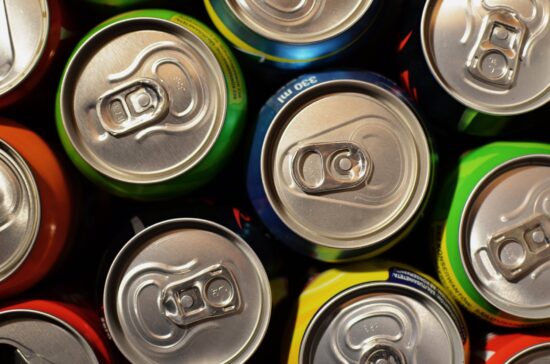Keeping Your Shelves Safe: Canned Food Storage 101

You might think you don’t need to pay attention to the shelf life of canned foods because they last forever, but practicing safe canned food storage is a must. This is one of the big topics discussed in our online food handlers certification course.
Here are 5 tips for canned food storage you should be aware of:
1. Understand that Canned Foods Have a Shelf Life
For most food handlers, canned food storage seems to be something that will sustain life during a post-apocalyptic situation. Unfortunately, this is really only true on AMC and in horror movies. If not handled properly, canned food can cause food poisoning.
While technically there isn’t a magical date that says when canned food is not safe to eat, that date does come. The appropriate shelf life of a canned good is approximately one year. Once you get past this period or open the can for consumption, you face a deterioration in food quality and safety.
2. There is a Huge Difference Between Unopened and Opened Cans
In short, once you open canned food, you better intend to use it. Once food in the can has been exposed to air, bacteria will grow and cause spoilage as it would in any other food.
An opened can of food should be consumed within a few days. Anything that you do not use in your can cannot stay in the can. Leftovers should be stored in an air tight container in the refrigerator.
3. Temperature Matters
As with all foods, temperature plays an important role with canned food storage. When storing canned goods, you want to store them in a cool and dark location like a panty or cupboard. You want to avoid extensively hot or cold temperatures when you store these types of foods.
Extremely hot temperatures can cause bacteria to grow more quickly and cause premature food spoilage.
4. Save Money and Cans by Practicing FIFO
Rotating cans is crucial when stocking canned foods. It can be easy to move a can of food to the back of your pantry when stocking a new delivery. This often leads to spoilage, waste, higher food cost, and can be a food safety concern. To avoid this, there is one big thing to remember: FIFO.
FIFO stands for “First In First Out.” Your mind probably won’t be blown with this explanation, but FIFO means the first delivered of a particular food item should be the first to be used. It’s common sense but requires action on your part.
5. Know When to Get Rid of It
The obvious first step is to check the expiration date on the can. You can also tell much about the condition of the food by observing the condition of the can. Never use foods from cans that have loose or bulging lids, are leaking, or have excessive dents.
Learn Safe Canned Food Storage With a Food Handlers Card
Certified On The Fly is a state licensed and accredited provider of the online Texas Food Handlers certification course. Our online course is the best way for you to learn about food safety and get certified to work in the state of Texas. Our course has no timer, no quizzes, and no final exam. Enroll and get your Texas Food Handler card today!
Back to Blog